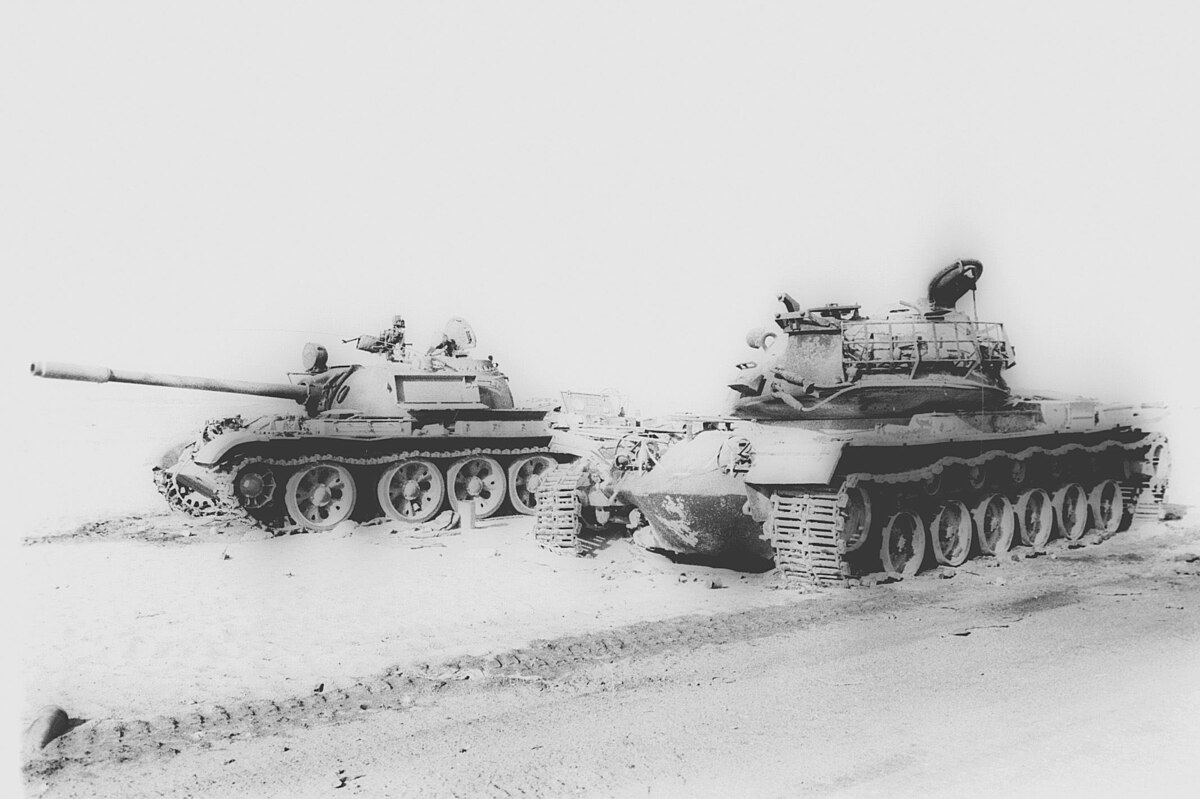
Yom Kippur War
Sinai Peninsula, Nuweiba, EgypIn 1972, Egypt's new President, Anwar Sadat, expelled Soviet advisers, contributing to Israeli complacency regarding potential threats from Egypt and Syria. Combined with the desire to avoid initiating conflict and a security-focused election campaign, Israel failed to mobilize despite warnings of an impending attack.[209]
The Yom Kippur War, also known as the October War, began on 6 October 1973, coinciding with Yom Kippur. Egypt and Syria launched a surprise attack against the unprepared Israeli Defense Forces. Initially, Israel's ability to repel the invaders was uncertain. Both the Soviet Union and the United States, under Henry Kissinger's direction, rushed arms to their respective allies. Israel eventually repelled the Syrian forces on the Golan Heights and, despite Egypt's initial gains in Sinai, Israeli forces crossed the Suez Canal, encircling the Egyptian Third Army and approaching Cairo. The war resulted in over 2,000 Israeli deaths, significant arms expenses for both sides, and heightened Israeli awareness of their vulnerability. It also intensified superpower tensions. Subsequent negotiations led by U.S. Secretary of State Henry Kissinger resulted in Disengagement of Forces agreements with Egypt and Syria in early 1974.
The war triggered the 1973 oil crisis, with Saudi Arabia leading an OPEC oil embargo against nations supporting Israel. This embargo caused severe oil shortages and price spikes, leading many countries to sever or downgrade relations with Israel and excluding it from Asian sporting events.
Post-war, Israeli politics saw the formation of the Likud party from Gahal and other right-wing groups, led by Begin. In the December 1973 elections, Labour, led by Golda Meir, won 51 seats, while Likud secured 39 seats.
In November 1974, the PLO gained observer status at the UN, with Yasser Arafat addressing the General Assembly. The same year, the Agranat Commission, investigating Israel's unpreparedness for the war, blamed the military leadership but exonerated the government. Despite this, public discontent led to Prime Minister Golda Meir's resignation.
